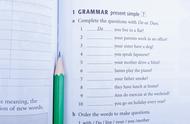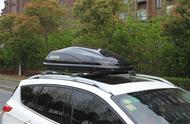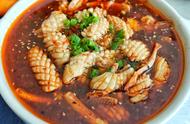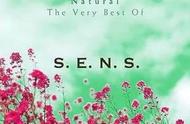重点句子轻松学
1. Is it time for dinner? 是不是该吃晚饭了?
此句是“It's time for dinner.”的一般疑问句,It's (about / high) time for sth/to do sth 意思是“该到……的时间了;……的时间到了”。如:
(1) It's high time for class.
到上课的时间了。
(2) It's about time to leave for the airport.
该动身去机场了。
(3) It's time for us to say goodbye.
到我们告辞的时候了。
2. How time flies! 时间过得真快!
此句是由how引导的感叹句,句中动词fly指时间“飞逝”。如:
Doesn't time fly? 时间过得真快!
动词fly的一般现在时第三人称单数是flies,其过去式和过去分词分别为flew和flown。如:
The winter vacation has just flown by.
寒假一晃就过去了。
fly常与by/pass连用。
3. I didn't realize it was time for dinner.
我没有意识到该吃晚饭了。
此句强调“我”原本不知道这种情形,所以要用过去时,一般表达为“I didn't realize 某种情形”,realize后跟宾语或宾语从句。如:
I didn't realize that you knew each other.
我不知道你们俩认识。
I realize how much you want to go shopping.
我知道你是多么想去购物。
4. It's probably due to jet lag.
或许是因为倒时差吧。
probably是副词,它的形容词是probable,表示“很可能;大概”的意思。如:
(1) You're probably right. 你很可能是对的。
(2) A: Do we need a car? 我们需要开车吗?
B: Probably not. 大概不需要吧。
due to sth/sb 意为“由于;因为”。如:
Most of the problems are due to human errors.
大多数问题都是由于人为错误造成的。
His success was largely due to his efforts.
他的成功大多是因为自己的努力。
jet lag意为“飞行时差综合征”。
5. What would you like to have for dinner, Chinese food or western food? 你晚饭想吃什么,中餐还是西餐?
一日三餐的英文表达是breakfast、lunch、supper。dinner常指(中午或晚上的)正餐、主餐。吃三餐的英文是have breakfast、have lunch、have supper、have dinner。
what would you like to do sth 常用于询问某人想要(做)什么。如:
A: What would you like to have for breakfast?
早饭想吃什么?
B: I'd like to have an egg, a cup of milk, and a piece of bread.
我想要一个鸡蛋、一杯牛奶和一片面包。
6. I love to try new things. 我喜欢尝试新事物。
love在此用作动词。如:
I love Chinese food. 我喜欢中餐。
也可以说话love to do sth。如:
I love to stay home on weekends reading novels.
我喜欢周末待在家里读小说。
口语中常用would love to do sth来表示“愿意做某事”。如:
A: Would you like to come for dinner next Sunday?
你愿意下周日来我家吃晚饭吗?
B: Thank you very much. I'd love to (have dinner with you).
非常感谢,我愿意。
句中try用作及物动词,意思是“试;试做;试用”。请看例句:
(1) Have you tried this new tea? It's good.
你尝过这种新茶吗?味道不错。
(2) Try this new method, and it may work.
试试这种新方法,也许管用。
(3) I'd like to try these shoes for size.
我想试一试这双鞋的大小。
8. I'm afraid I haven't. 很遗憾,我没预订。
I'm afraid为口语常用语,常用于礼貌地说出令人不快、失望或感到遗憾的事,意为“恐怕;很遗憾;对不起”。请看下面例子:
(1) I can't help you, I'm afraid.
对不起,我帮不了你的忙。
(2) I'm afraid I can't come.
很遗憾,我来不了。
(3 )A: Will it hurt? 会痛吗?
B: I'm afraid so.恐怕会痛。
9. Is there a table available for two by the window?
有没有靠窗的2人桌子?
这个句子是 there be句型的一般疑问句,表示“某地有某物,或某地存在某物”。如:
There is a lake on the campus.校园里有一个湖。
变为疑问句就是“ Is there a lake on the campus?(校园里有一个湖吗?”,肯定回答用"Yes, there is.",否定回答为“ No there isn't.”。
这个句型的复数形式是 there are...。如:
There are many flowers in the garden.
花园里有许多花。
变为疑问句“ Are there many flowers in the garden?(花园里有许多花吗?)”,肯定回答为"Yes, there are.”,否定回答为“No,there aren't."。
by the window中的by是介词,在此短语中意为“靠近;在旁边”。如:
There is a house by the lake.
湖边有一幢房子。
Come and sit by me.
过来挨着我坐。
形容词available是个常用词,表示“可获得的;可找到的;可购得的”。如:
There is a computer available in the lab.
实验室里还有一台电脑可以用。
Tickets are available free of charge from the school.
学校有免费票。
Do you have a double room available for this Saturday?
本周六你们有双人房吗?
另外,available还可表示人“有空”。如:
A: I want to talk with you now.
我想现在和你谈谈。
B: I'm afraid I'm not available.
对不起,我没空。
10.There it is.那儿有一张(桌子)。
“ There it is.”是倒装句,正常语序应为“It is there.”有很多以here和there开头的倒装句。如:
Here comes the bus. 公交车来了。
Here we are. 我们到了。
Here it is. 给你。
There goes the bell. 铃响了。
There goes the phone. 电话铃响了。
There your go. 请慢走(再见)。
11. We can enjoy the view. 我们可以欣赏风景。
enjoy是口语中常用的动词,表示“欣赏;喜爱;享受……的乐趣”,请看下面的句子:
(1) We've really enjoyed our time in Hainan.
我们很享受在海南的时光。
(2) I enjoy playing basketball.
我喜欢打篮球。
(3) We all enjoyed ourselves at the party.
我们在聚会上都玩得非常开心。
(4) The people in this village enjoy a peaceful life.
这个村子的人们享受着平静的生活。
12. This is our e-menu. 这是我们的电子菜单。
e-menu是electronic menu的缩写形式,英语中还有一些类似常见的复合词,如:e-book(电子书)、e-dictionary(电子词典)、e-mail(电子邮件)、e-business(电子商务)、e-commerce(电子商业)等。
13. Do you like spicy food? 你喜欢辣味菜吗?
句子“Do you like……?在口语中十分有用,意为“你喜欢……吗?”
Do you like Sanya? 你喜欢三亚吗?
Do you like chocolate? 你喜欢吃巧克力吗?
肯定回答用“ Yes, I do.”,否定回答用“ No, Ⅰdon't.”,根据实际情况也可以有其他方式的回答。
14. How about sweet and sour food?
酸甜食物怎么样?
how about常用于提出建议,后面可跟名词、动名词和从句。请学习下面的句子:
(1) How about Guangdong-style dishes?
吃粤菜如何?
(2) How about eating out?
出去吃饭怎么样?
(3) How about if we leave tomorrow instead?
假如我们改为明天出行怎么样?
另有一类似词组what about。如:
What about Mexican food? 吃墨西哥菜怎么样?
15. It's just to my taste. 酸甜食物最合我的口味了。
词组to one's taste表示“适合某人的口味”。如:
Modern art is not to everyone's taste.
现代艺术不见得适合每个人的口味。
Butter and bread is to most people's taste in the West.
黄油面包适合大多数西方人的口味。
16. Well, would you like anything to drink?
哦,你要喝点什么?
英语口语交流时,说话人常用一些语气词,如:now、well、OK、all right、alright等,给自己留下短暂时间思考,中文可译为“哦,啊,噢”也可不译。
“ Would you like anything to drink?”要比“ Do you want anything to drink?”语气委婉一些,礼貌一些。
17. It's my treat. 我请客。
请客前或付款前的惯用语,最好不说“I'll pay.”。如:
Let's go out for dinner一my treat.
我们到外面去吃晚饭,我请客。
在此treat用作名词,有“招待;款待”之意。
18. What is it? 这是什么菜?
这句话是指说话人想对某事了解更多,请对方解释或说明时的常用句型。译文可根据上下文确定。请看下面的小对话:
A: I have a plan for this holiday.
关于这个假期我有个计划。
B: What is it?(What is your plan?) 你的计划是什么?
19. Sounds good. 听上去不错啊。
动词sound用法很多,此处用作系动词,意为“听起来好像”。如:
His suggestion sounds reasonable.
他的建议听起来好像有道理。
Your advice sounds nice.
你的建议听起来不错。
20. We need one more dish. 我们要再点一个菜。
need在句中用作及物动词,意为“需要”。如:
I need your help. 我需要你的帮助。
She needs some money to buy new clothes for the party.
她需要钱为这次聚会购买新衣服。
“one more 名词”表示“还要一个”。如:
You'd better take one more picture.
你最好再拍一张照片。
Give me one more chance, please.
请再给我一次机会。
21. It tastes sweet and sour. 吃起来酸酸甜甜的。
taste可用作名词和动词,句中用作系动词,后跟形容词或介词like,表示“(品尝)有……味道”的意思。如:
The beer tastes bitter. 这种啤酒有点苦。
The drink tates like srawberry. 这种饮料有草莓味。
The dish tastes good. 这个菜味道不错。


文化知识小贴士
邀请朋友吃饭是中西方文化中的常见现象。如果要邀请英语国家的人在餐馆吃饭,要注意以下事项。首先,绝大多数英语国家的人习惯于提前制订工作和生活计划,如有可能,一般至少要提前一周约定好吃饭时间和地点;其次,最好告知客人赴宴时的着装是正式的还是非正式的;第三,主人应稍微提前点到约好的餐馆等待客人;第四,如果围桌用餐,最好准备公筷和公勺,并给客人配备刀叉;第五,最好不要给客人夹菜,更不能用自己的筷子给客人夹菜。劝客人多吃一点,可以说“Please help yourself.”。最后,请客菜量要适中,避免浪费。假如你邀请英美朋友到你家吃饭,他称赞你做的其中一道菜很好吃,说道:“This dish is tasty.”,你觉得下面的哪个回答比较合适?
A. Yes, it's delicious,isn't it?
B. You're welcome.
C. I'm glad you like it.
D. It's very ordinary.
E. Thank you. It's not difficult to make,actually.

词汇加油站
文昌鸡 Wenchang Chicken
嘉积鸭 Jiaji Duck
和乐蟹 Hele Crab
东山羊 Dongshan Mutton
椰子饭 coconut rice
海蟹粥 sea crab congee
竹筒饭 bamboo rice
斋菜煲 vegetarian pot/dish
海南粉 Hainan cold rice noodles
抱罗粉 Baoluo rice noodles

























